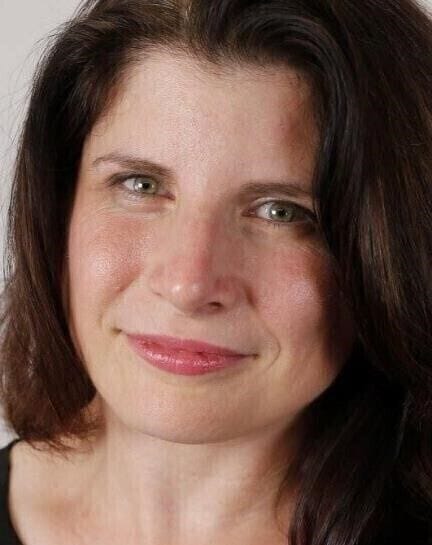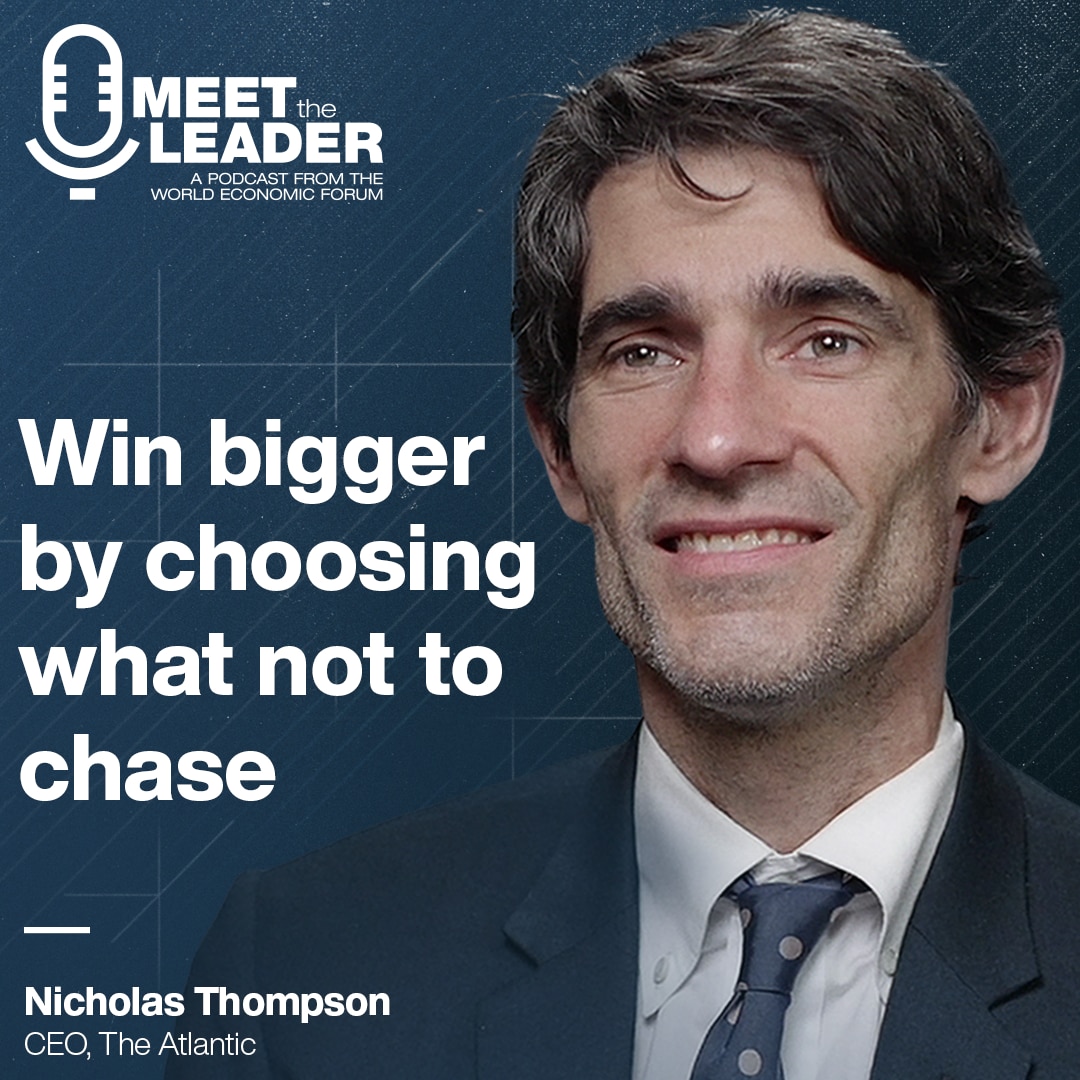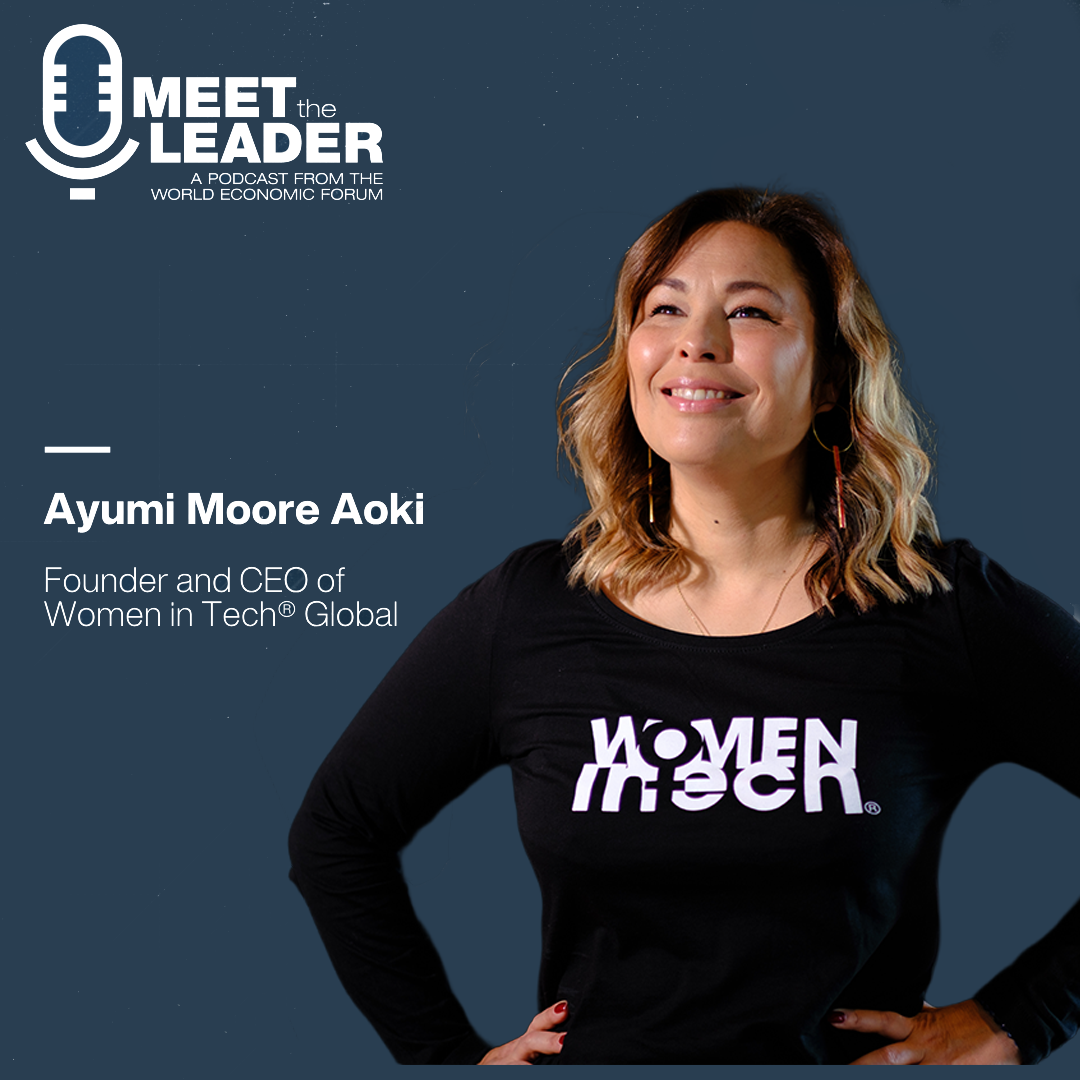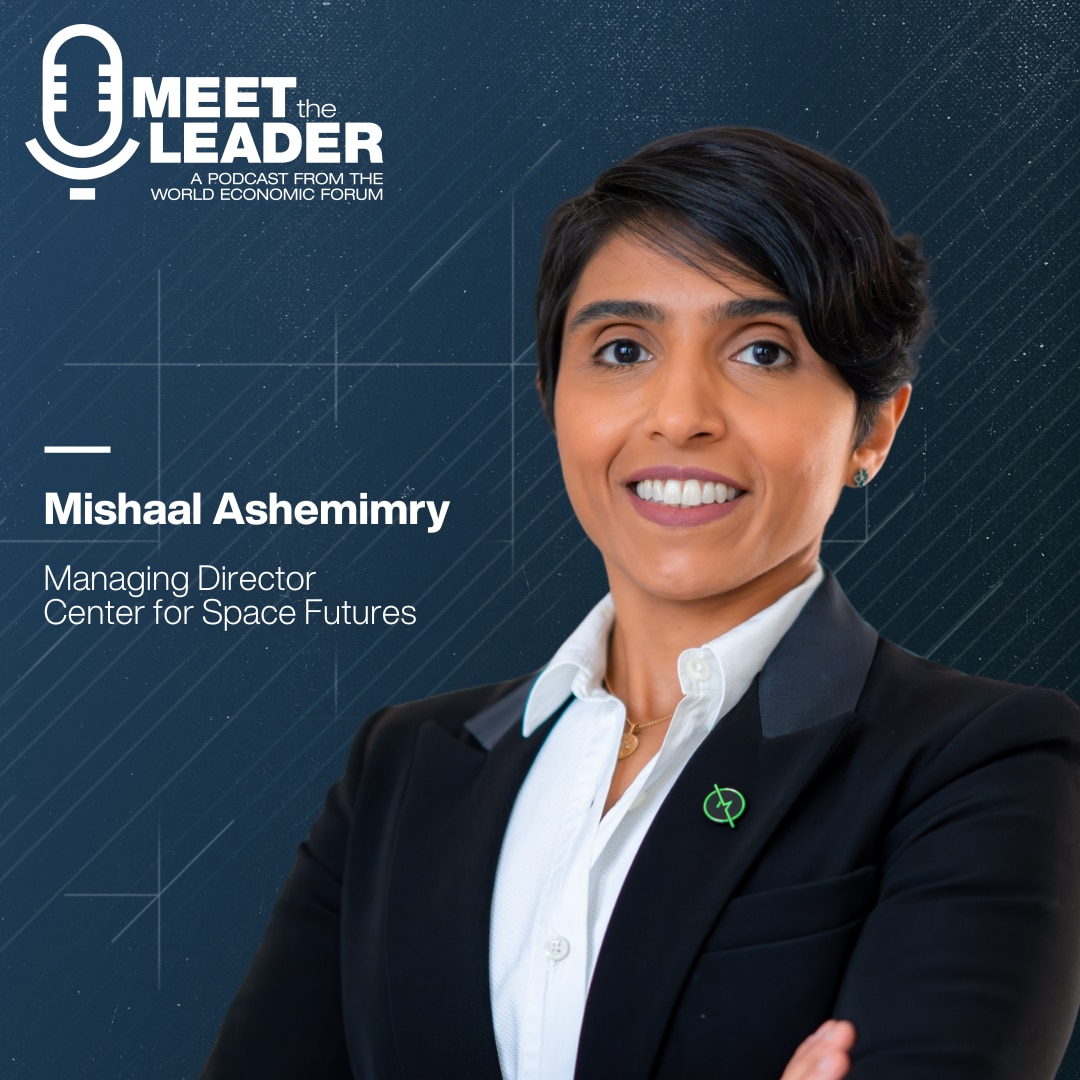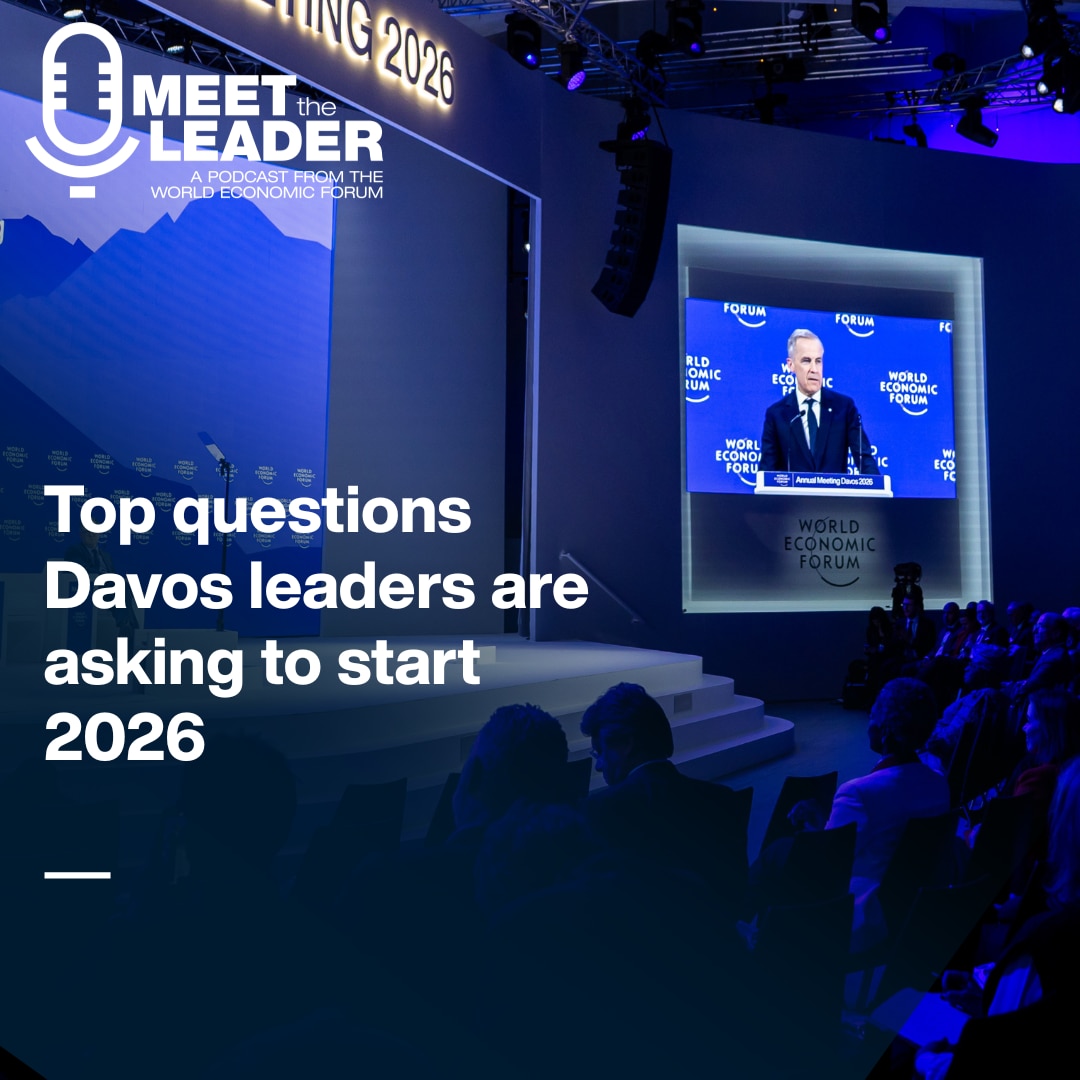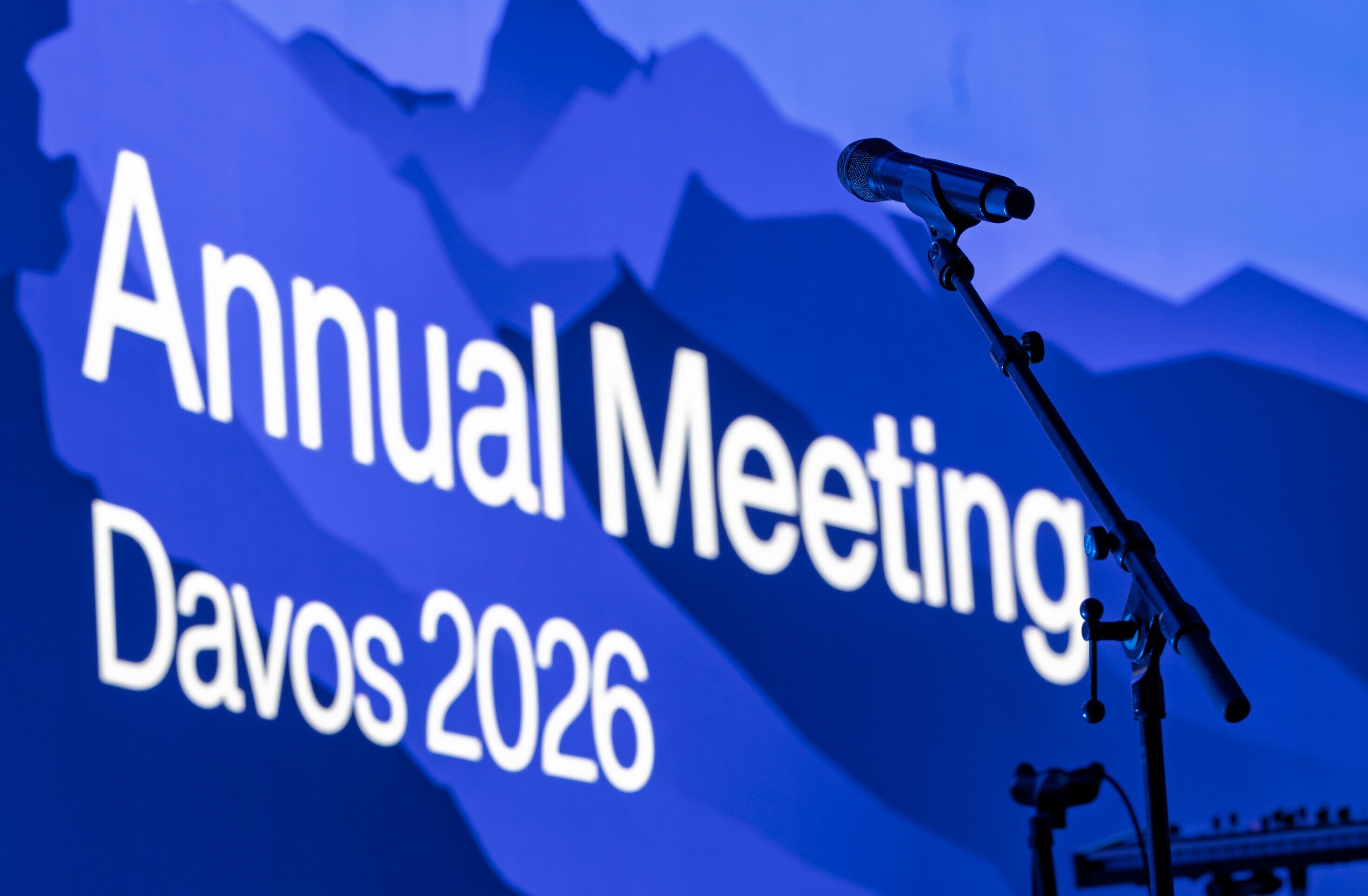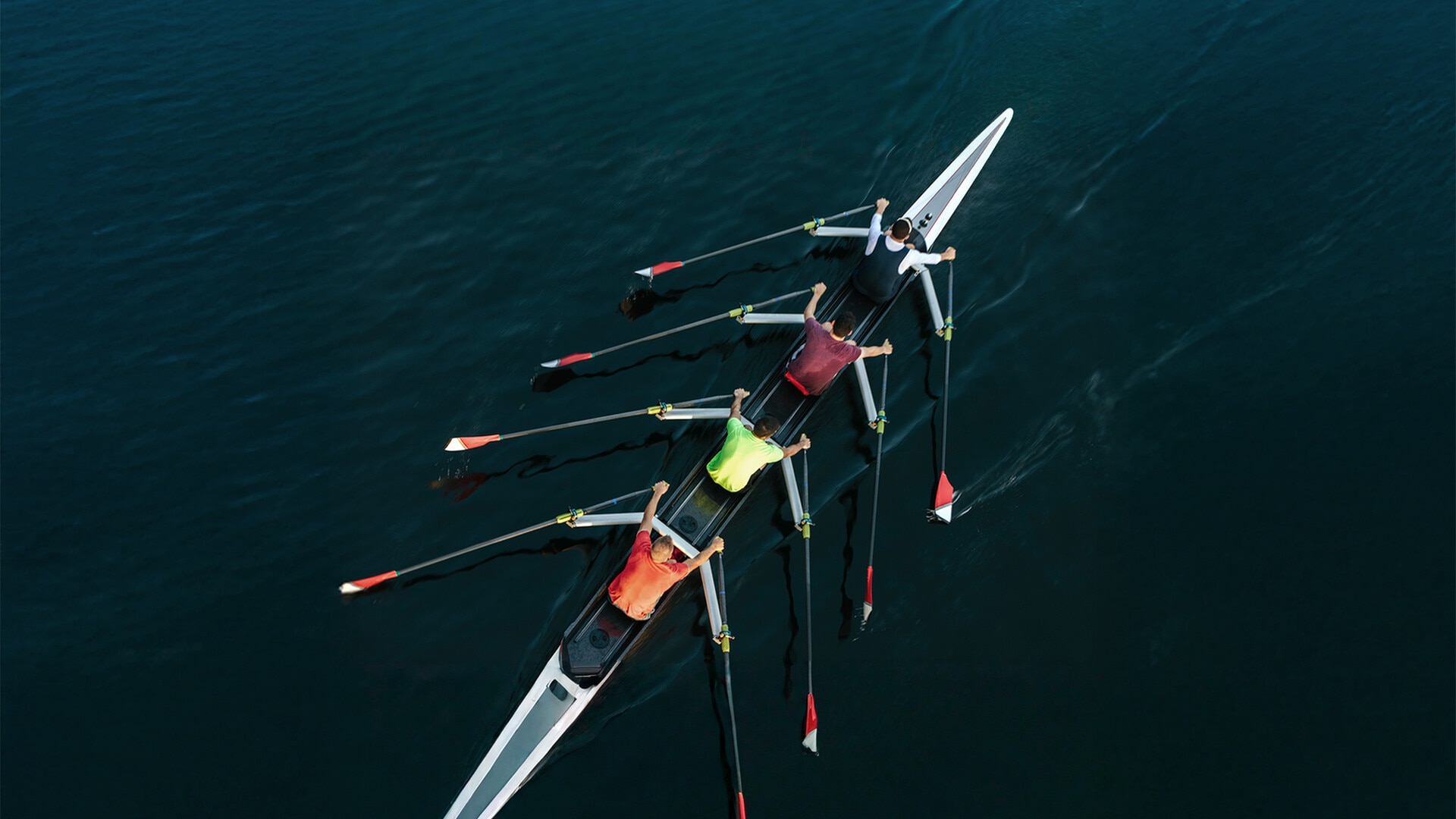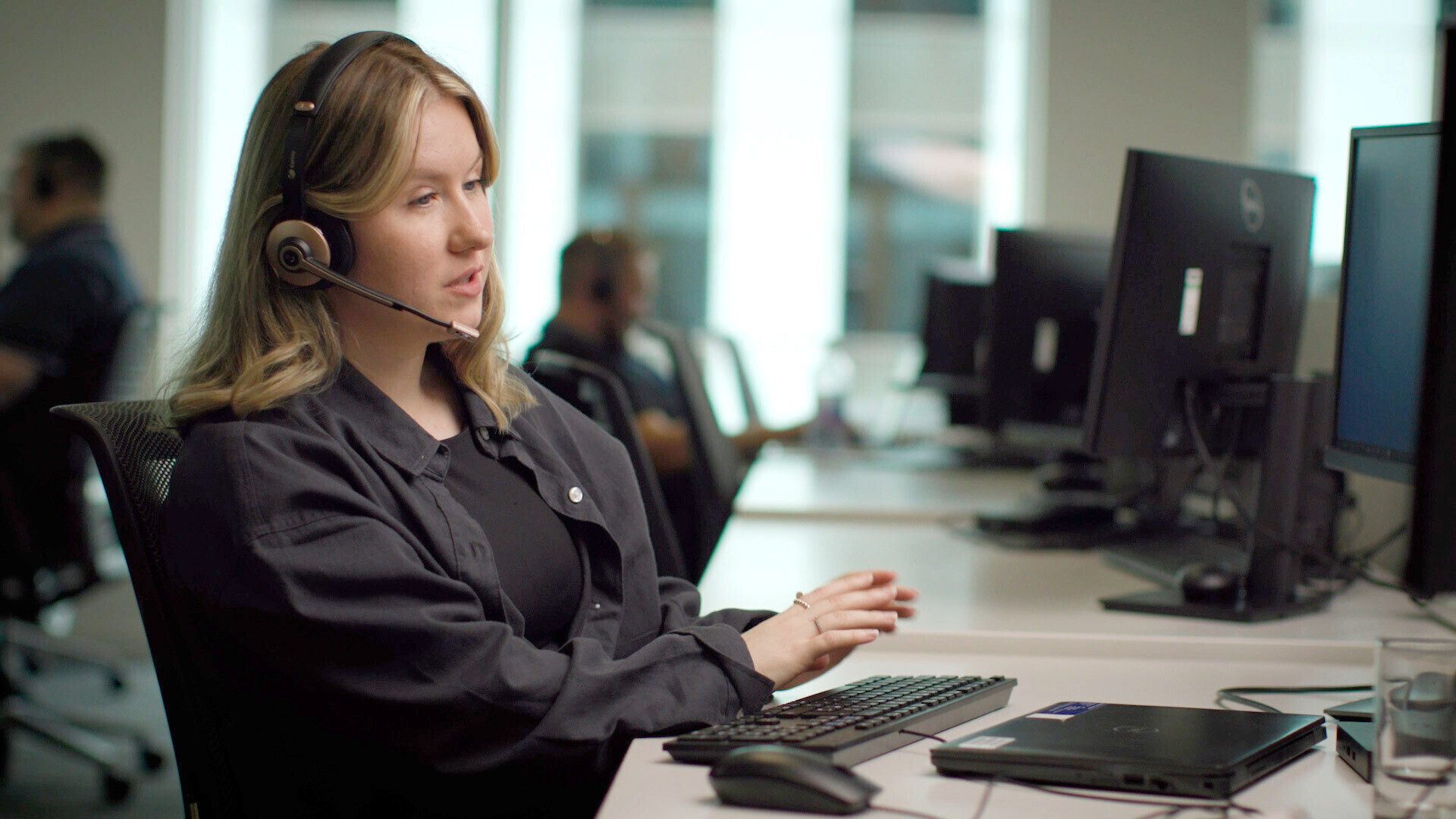12 leaders share what to prioritize in 2024
播客文字稿
Daphne Koller, Insitro When you're at times like this where you are on this exponential curve, small actions can have large downstream consequences because they get amplified over time.
Linda Lacina, Meet The Leader Welcome to Meet the Leader, a podcast where top leaders share how they're tackling the world's toughest challenges.
In today's special compilation episode, recorded at the World Economic Forum's Annual Meeting in Davos, we share what some of the world's top leaders want you to keep in mind this year.
Subscribe to Meet the Leader on Apple, Spotify and wherever you get your favourite podcasts. And please don't forget to rate and review us. I'm Linda Lacina from the World Economic Forum and this is Meet the Leader.
Hilde Merete Aasheim, Hydro It's a fragile world. But we have to do as best as we can and position ourselves in that sense.
Linda Lacina, Meet The Leader Every year, leaders from business, government and civil society descend on Davos, Switzerland Hall to share their thoughts on how to tackle the biggest problems of our time.
These talks help shape the agenda for many sectors and organizations for the year ahead. Our podcast booth pulled experts in front of a microphone to get those insights and give you windows into what leaders felt was most important and what any leader should prioritize.
Their insights will give a window into everything from how global risks and new technologies will pull our focus, and how leaders can respond and better guide their teams.
We'll get into all of that, but first, we'll get started with a special reminder on the importance of setting objectives and the impact that can bring. This comes to us from Sander van't Noordende. He is the CEO of Randstad, a leading global recruiting firm based in the Netherlands. And he shared with us an approach to setting priorities that he uses himself.
Take time to set objectives
Sander van't Noordende, Randstad Yeah, so very important habit that I have -- and it really works well for me, is, you know, taking time out. Taking some time for myself. Taking a blank sheet of paper. What do we need to do as an organization in the next three, six, nine months? Or maybe in the next 2 to 3 years? Sometimes. And write that down for myself and then socialize, with my team to sort of see if what's the next agenda that we now need to execute. So taking some time off, I mean, not always be in the meeting, not always be out there at the clients or talking to investors. Those are all very important things. But, you know, take some thinking time, and draft the actions or the agenda for the next couple of months or a couple of quarters or a couple of years, I think is really important.

Linda Lacina, Meet The Leader Sander also shared how leaders can consider big-picture questions and really build their vision.
Sander van't Noordende, Randstad You need to know who you want to be 5-10 years down the line. And in these days, there is no strategic plan for five or ten years anymore. So yes, you have to set that aspirational goal.
You need to know who you want to be 5-10 years down the line.
”So we say we want to be the world's most equitable and specialized talent company, and that's aspirational talent because we are about talent. That's the agenda we help our clients with. That's the talents we help in the marketplace: Find a job and build a career.
Equitable. Very simple. Talent is scarce. We need everybody on the pitch, and we need to make sure that the playing field is levelled. Everybody has a good chance to get through the process.
Specialized because our clients are looking for specialized people, not just people, to show up on Monday, on Monday morning.
So having that vision, that North Star for, for your company, even if it's in broader terms, I think is a very important thing to have, because then you can fill that up with, you know, you can complement it with, with specific strategies for your customers, for your talents, for how you deliver, for your technology, and, of course, how you want to shape your own, your own team. But having that vision is really important.
Make room for innovation
Linda Lacina, Meet The Leader As you shape your plans for the year, don't make them so rigid that you can't pivot. That's the lesson from Fidelma Russo. She is the Chief Technology Officer at Hewlett Packard Enterprise. There she drives their innovation team, working on big ideas for the future. She shared how leaders can be nimble so they're always prioritizing the most innovative ideas. She even shared how they can find the budget for them.

Fidelma Russo, HPE In some ways, the yearly planning cycle is a good thing. In some ways, the yearly planning cycle actually is somewhat stifling, and technology cycles tend not to run on yearly planning cycles. Gen AI, didn't, I mean, it didn't really go along our planning cycles. And so all of us had to adjust last year and say, what are we going to take out? And so if I took something like GEN AI, you know, what we've actually done is to say, okay, wasn't in our budget cycle, wasn't in our planning cycle, but, we've adjusted and said in every business unit, what are you doing internally? How are you using it to change your product, and your product trajectory? What are you doing that, you know, may have been more traditional that you could accelerate. And where are the where is the experimentation that you're doing?
How much of your budget are you allocating to experimentation?
”Budget for experimentation
Fidelma Russo, HPE The other piece is how much of your budget are you allocating to experimentation? Okay. And really, you need to be allocating about 10% of your budget to that. And that seems like a lot. But there's always money in everybody's budget that's being spent on kind of what I would call sedimentation, you know, down at the bottom. And, you know, I would encourage every leader to look and say, you know, how do I find that money? Because if you don't find that money and use it to do things that may be a little bit of a moonshot or a little bit of, you know, a crazy idea, then you're not allowing your team to think outside the box enough and you're going to miss an opportunity.
Know what's on the radar
Linda Lacina, Meet The Leader With that in place, leaders can dig into what is ahead. Milton Cheng gave a special window into some of the headwinds to come. He is the global chair of Baker McKenzie. That is a global law firm that turns 75 this year. And for the last seven years, it has conducted a special survey with hundreds of senior lawyers from around the world: Its Global Disputes Forecast. Now much of this is aligned with our very own World Economic Forum's Global Risk report, with concerns from climate change and cyber attacks. But it also dug into other challenges. I'll let him talk a little bit about that and that research.
Milton Cheng, Baker McKenzie We do an annual survey, with more than 600 in-house, disputes lawyers, in-house counsel and so on. In our client corporations, across all of the four continents in which we operate. So, you know, India, North America, South America, and Asia Pacific. And we ask them every year, not just what's currently on their minds, but looking ahead, what's on their radar for the coming year? What are the types of risks that's top of mind for them and for their boards?
Milton Cheng, Baker McKenzie One thing that has been increasingly we've seen over the last few years is complexity arising from increasing regulation, whether it's regulation of antitrust, you know, and merger control, whether it's regulation of foreign investments and things like that. Or right now, regulation of of ESG matters, disclosures and the like. The increasing regulation we've seen is more on people's minds.
Another trend we've seen in terms of the types of, risks that our survey population responds to, is that the in-house counsel, the in-house lawyer for any corporation now is more than just a, you know, "ask you a legal question. I'll tell you the legal answer." More and more in-house counsel are operating as business partners with the boards and with the business facing colleagues. So, over the seven years, we've seen a higher proportion of the risks more than just operational legal risk, but also include reputational risk.
Linda Lacina, Meet The Leader One other change stood out to him, though, and it's one that leaders can pay attention to.
Milton Cheng, Baker McKenzie Most of the findings, confirmed and validated trends and issues that we were picking up on already, among our disputes and compliance team.
If I had to pick one item, it would be, you know, regarding the scale of perception of employment dispute risk. So employment disputes. Why do I say that? Typically employment disputes are somewhere on the radar. But in this latest survey, we found a number of survey respondents citing employment disputes as one of their top five doubled. So the scale of the jump surprised us a little bit. When we were doing the analysis, as I was saying, and we step back and look at it, you can sort of see why.
In many countries around the world now, there's increasing legislation on equal pay, pay transparency. From an ESG standpoint, I think there's better a greater awareness now and greater employee expectation on wellness protection, for example.
And of course, the economic situation is also there. I think that the, more, employee layoffs, redundancies and all that, sometimes, you know, triggering more disputes.
So when you step back and look at it, that was what surprised us a little bit the scale of the job.
Most of the clients that we work with are multi-country clients. And actually quite a large proportion of them, headquartered in, quite mature legal systems, in quite mature markets like the US, like the UK or Germany or other places like that. So oftentimes how we work with our clients to support them looking at this is, you know, if something does come up with risk is identified in a particular country, you don't just deal with it in that country. You think about, okay, and how will this also affect me in Australia or Singapore or China or somewhere else. And you try and get ahead of it, even if the legislation or even if the working environment, the conditions are not at that point you're triggering, you know, the risks or the issues, you plan ahead.
Linda Lacina, Meet The Leader In a time of swirling geopolitical conflicts, we can't lose sight of the climate. That was the message from Hilda Merete Aasheim. She is the president and CEO of Norsk Hydro, an aluminium and energy company with a 100-year history. It's looking to drive the green aluminium transition all through low carbon -- and eventually no carbon -- aluminium. Her message for leaders centres on the climate. And here's what she'd like them to prioritize.
Hilde Merete Aasheim, Hydro We have to start acting. Not only setting ambitious goals, but to act, and that's on the top of my agenda when it comes to the making of the game change for aluminium. But we are in a geopolitical situation, which is very difficult at the moment. And, for a company and for the CEO, like me, you really have to address the risks and see how can we position ourselves, how can we manoeuvre? We are not the presidents of the nations. We are not in the sort of politics, but you have to understand the environment you're working in and try to find a way to manoeuvre and also see opportunities.
It's a fragile world, but, we have to do as best as we can
”
I think that, in the sense, the new leadership is also about partnership. To partner and to see how we can make systemic shifts in the value chains to make ourselves more robust and resilient in terms of not being cornered, in the sense of being too dependent on unknown sources, for example.
It's an interesting time, and it's, and it's a fragile world, but we have to do as best as we can and position ourselves in that sense.
Know the impact you're making
Linda Lacina, Meet The Leader Technology was a hot topic of conversation this year, and many leaders had thoughts and how we can best approach those changes. Leaders like Daphne Koller, she is the founder of Insitro, that is a machine learning or AI-enabled drug discovery and development company. She reminded us that we are at a critical moment of change for technology, and she shared how leaders can better navigate the hype cycle, and how they can be wary of the long term impacts that small decisions will have right now.
Daphne Koller, Insitro I think we're at a time of incredible technological opportunity, and that technological opportunity can be deployed in ways that are beneficial to humanity or not so beneficial. And that is certainly the case, even if you're -- I mean, certainly if you're in industries that are social good industries, but even in any other industry -- you can think about the downstream secondary consequences of the actions that you take in deploying that technology and really be mindful of how you can do it in a way that overall increases societal good.
And I think that we are, in a moment in time, 2023 was an amazing, I think, inflection point in the technology journey of humanity.
Think about the downstream secondary consequences of the actions that you take in deploying that technology and really be mindful of how you can do it in a way that overall increases societal good.
”When you're at a time like this where you are on this exponential curve -- small actions can have large downstream consequences because they get amplified over time. So I would encourage people to be really thoughtful in how they're deploying technology so as to optimize for maximum the maximum benefit to humanity.

Be Human, be ethical and act now
Linda Lacina, Meet The Leader Petra Jenner agrees. She is the senior vice president and general manager for Splunk. Splunk is a special digital platform well-known in the cybersecurity space that helps companies be more resilient. Our annual Global Risk Report found cyber attacks on the top of list of risks that leaders are worrying about for the year ahead. And she stressed the need for frameworks at this critical moment in time.
Petra Jenner, Splunk How do we utilize these technologies? Right. And how do we not utilize them? What are the ethical usage. Right. And where we don't allow certain technology to be used and be very explicit around that. I think that's absolutely fundamental. This has to happen now because the further we emerge and leverage these technologies, it is probably too late to, you know, to do this afterwards. So we have to think of how does an organization leverage these technologies and set boundaries and also clear rules and guiding principles? This is what I mean by framework to make sure that it's used in the way we want to have the leverage of this technology. And it should always be human-centric. That's the way we apply it at Splunk. We have this framework. That's absolutely fundamental.
This has to happen now because the further we emerge and leverage these technologies, it is probably too late.
”Consider risks to workforces
Linda Lacina, Meet The Leader One of those frameworks will need to be considerations for workers. Christy Hoffman is the general secretary of UNI Global Union. That's a group that brings together unions from around the world in 150 countries. Things like caregivers, postal workers, call center workers. This group helps share strategies and build solidarity. And when it comes to AI, she'd like leaders to better assess the risks ahead.

Christy Hoffman, UNI Global Right now, generative AI has not really been deployed in so many workplaces for us to know the true reality, you know, in terms of long-term impact.
Our position, is, you know, now has been that when employers want to implement new technologies, whether it's generative AI, it could be algorithmic management -- There's a whole suite of digital impacts that workers are experiencing -- They need to sit down and negotiate with unions and how they can do that in a way that benefits everyone.
We're not anti-technology, but obviously there's risks attached when we think about generative AI, which is the main topic of this, of the Forum this year. You know, there's risks attached. People are afraid they're going to lose their job. Some people are afraid they're going to have to work too much because of a lot of the softer, easier stuff will be taken away. You know, these things have to be looked at through a risk assessment process. We need notice. We need discussion about what are the impacts, whether it's health and safety or job security, or any other range of things, so that we can work together to implement AI in both a sustainable way, but also in a way that benefits both.
The biggest fear, I think that I have and many others, and this kind of came through in the IMF report, is that the benefits will all, go to the very top, whether it's the shareholders or the top managers. And I know from our work representing call center workers, for example (and this is one industry that's been studied, extensively. They think the calls will be about 16%, 14%, something like that shorter, as a result of generative AI. So who does that 16% go to? Does that mean workers have to do 16% more calls? Does that mean that they all get a raise? So it's really about sharing some of the new efficiencies.
We're not saying we should go back to the old way and now make the calls longer, but we do think that we need to have some real negotiations around the impacts of AI.
Consider your team - and the caregivers on it
Linda Lacina, Meet The Leader Of course, putting people first is a priority for all of the leaders that we talked to, including Reshma Saujani. She is the founder of Moms First. That's a movement to get paid leave for childcare in as many places as possible. We talked in January about a special AI-powered tool that moms first developed to help connect women to paid leave in New York State. She also shared how any leader, though, can make a difference for the caregivers on their own team. Here's what she said.
Reshma Saujani, MomsFirst Childcare. Do something on childcare. And I'm not trying to go build a childcare center. You know, if you do that, great. But do something. It might just be providing backup care, like not penalizing flexibility or remote work when there's a crisis, or when you just want to spend a little more time with your kids. You know, it's providing childcare subsidies.
But, you know, I really think that the thing that families are going to care about, especially this millennial generation, is how you treat their families. They're going to want to work for companies that not going to be about like, do they have the best snacks? You know, I mean, or give me the most amount or pay for my gym membership? It's going to be like, can I actually be, you know, an active dad? Can I take Johnny to school or be, you know, the coach of his little league, or take time when he's sick?
And are you still going to offer me my promotion? Are you still going to value my work? Are you still going to... you know what I mean. Value me and value me means value in my family and my family responsibilities, and not forcing me to choose between those identities.
We know that if you offer remote work or flexible work, that things will not end. Etsy, Patagonia, just many companies out there that have always centered families and children in childcare and paid leave, and they're crushing it. From a productivity perspective.
Why is there resistance to this? And, you know, Claudia Goldin, I think, talks about what she calls greedy work, right? That again, part of American culture is that you're always on, you're always available. You're working all the time, even if it's facetime. And so we have to in some ways let go of that a little bit, and recognize that, you know, when there are life moments where people need that flexibility in that time.
And that might mean it's the first five years of a child's life, right? That parents need that, too.

I think we can't keep having conversations about gender inequality without centring care, period. Right. And I think that there's been so many conversations we've had about upskilling or the. Knowledge gap. You know, or, you know, skills gaps. And it's really like, I think if we can commit here, to say we're actually globally going to make policy changes on care and then quantify what the impact of that is on women's labour market participation. That would be incredible. I mean, you wouldn't have a gender gap, period. You'd have the full participation of women in the labour force. You wouldn't have a poverty gap with children because children would be getting adequate care. You wouldn't be bankrupting global economies because they haven't done anything on elderly care -- which is coming.
We can't keep having conversations about gender inequality without centring care, period
”So all of these crises that we're either in the middle of or that we're just at the cusp of, either are not going to happen are going to be fixed because we've centered care.
Remember: You can change small worlds
Linda Lacina, Meet The Leader Our last set of leaders stressed what's needed in a world desperate for peace and trust.
To start us off. We can learn from Catalina Cock Duque. She is the founder of Fundacion mi Sangre, an organization in Columbia dedicated to shaping the next generation of leaders through trainings, all to develop a range of skills: empathy, conflict resolution, tolerance, assertive communication, and self-awareness. Through advocacy they also help ensure that young people in vulnerable communities impacted by violence can make positive change happen. Those lessons are helpful for anyone, and in a time of growing geopolitical tensions, here's what she says any leader can put in place for themselves or others.
Catalina Cock Duque, Fundacion Mi Sangre First of all, in times of crisis, hope is a must and it's the energy and the engine of change. And second, I would say that they should open many paths, many possibilities. I know when we're young, sometimes we're very driven and have a clear goal and clear ambitions. But if you open, to more possibilities, many, many opportunities can come. I think you can train your brain to become optimistic, practicing gratitude, for example, connecting to leaders and initiatives that are creating change. I think sometimes we are overwhelmed by the size of the challenges that we're facing. So we feel we could never change the world, but we can change small worlds. We can do a small part. So go and connect in your communities, in your surroundings, with people who are leading the change and make sure you -- hope is contagious. So make sure you get in contact with that.
Linda Lacina, Meet The Leader Our last set of leaders stressed what's needed in a world desperate for peace and trust to start us off. We can learn from Catalina Cock Duque. She is the founder of Fundacion mi Sangre, an organization in Columbia dedicated to shaping the next generation of leaders through trainings, all to develop a range of skills empathy, conflict resolution, tolerance, assertive communication, and self-awareness. Through advocacy. They also help ensure that young people in vulnerable communities impacted by violence can make positive change happen. Those lessons are helpful for anyone, and in a time of growing geopolitical tensions, here's what she says any leader can put in place for themselves or others.
Catalina Cock Duque, Fundacion Mi Sangre First of all, in times of crisis, hope is a must and it's the energy and the engine of change. And second, I would say that they should open many paths, many possibilities. I know when we're young, sometimes we're very driven and have a clear goal and clear ambitions. But if you open, to more possibilities, many, many opportunities can come. I think you can train your brain to become optimistic, practicing gratitude, for example, connecting to leaders and initiatives that are creating change. I think sometimes we are overwhelmed by the size of the challenges that we're facing. So we feel we could never change the world, but we can change small worlds. We can do a small part. So go and connect in your communities, in your surroundings, with people who are leading the change and make sure you -- hope is contagious. So make sure you get in contact with that.
Sometimes we are overwhelmed by the size of the challenges that we're facing. So we feel we could never change the world, but we can change small worlds.
”Linda Lacina, Meet The Leader Of course, key to committing to that positive change is to look inward. Rudayna Abdo is the founder and CEO of Thaki, a nonprofit that takes donated and used computer hardware and delivers it to schools that cater to refugees and other vulnerable children in the Middle East. Her work deals with a few mounting crises simultaneously, all from protecting the environment to looking out for some of the youngest victims of today's unprecedented number of displaced people. She stresses that leaders must consider tapping into their core humanity.
Rudayna Abdo, Thaki I don't know how we're going to do it. It's feeling very dark right now. I know this is not what I should be saying. I know this is supposed to be optimistic, but we have to see each other, and we are so divided. We need to find the humanity in ourselves again. And that's what we all need to work really hard on. Finding humanity and leadership can help in finding humanity because leadership can set the tone.
Linda Lacina, Meet The Leader Olajumoke Adekeye also had thoughts for leaders. She is the founder of the Young Business Agency. That's an employment accelerator in Nigeria, and that initiative has helped thousands of young people better position themselves for their futures. She would like to see leaders think more holistically when they consider the people that they serve, whether those people are in their company or outside it. Here's what she had to say.

Olajumoke Adekeye, Young Business Agency We need to pay attention to intergenerational equity. We need to recognize the importance of, building coalitions around ensuring that we bring out the best, for humanity. There are so many projects, initiatives, coalitions, commitments that are being made. It's going to be important to center that on human beings. That's incredibly important because we sometimes forget, that, when we think about the statistics and the numbers, we can lose sight of the importance of health or well-being. And even as we think about that, I think, second to that would be also recognizing the impact that these different, new initiatives or continuing initiatives have on climate and the intersection of climate and health. For instance, and environments. It's going to be very important, for us to not focus just solely on the singular issues that we're trying to tackle, but recognize the intersectionality of all these, issues that center around, progress for humanity.
Linda Lacina, Meet The Leader Lastly, we talked to Jagan Chapagain. He is the secretary general and chief executive officer of the International Federation of Red Cross and Red Crescent Societies, the IFRC. That is an organization with close to 17 million volunteers in 191 countries. These are the people who help the world on its worst days. Earthquakes, floods, manmade and natural disasters. And he echoed a key theme from this year's Annual Meeting: the need to rebuild trust. Here's how it can help us all move forward.

Jagan Chapagain, IFRC I think it might sound a bit cheesy, but the theme of this 'Rebuilding Trust' a lot of the crisis we are facing around the world. The underlying issue has been the lack of trust, and with the technology growing and, of course, the AI we are talking about here is, of course, that technology brings a lot of positives, but if it is not used, it can also contribute to eroding the trust. And that's where I think it's extremely, extremely important that the leaders' job is to focus on the positive and build or contribute to building the trust that.
Now, building the trust means do what you say and say what you mean. And if enough leaders do that, that starts with recreating the trust in the world. And without that, a lot of the other solutions would would not produce the result we want.
Linda Lacina, Meet The Leader And that's what leaders should prioritize in 2024. Thanks so much to all of the leaders who spoke to me for this week's episode. And thanks so much to you for listening.
Find a transcript of this episode, as well as transcripts from my colleague's podcast, Radio Davos, all at wef.ch/podcasts.
This episode of Meet the Leader was produced and presented by me, with Taz Kelleher as editor, Juan Toran as studio engineer in Davos and Gareth Nolan driving studio production.
That's it for now. I'm Linda Lacina from the World Economic Forum. Have a great day.
Where do you see yourself and your team a year from now? What impacts will small decisions now have in 5 to 10 years? In this special compilation episode of Meet The Leader, heads of top companies, civil society organizations and non-profits shared what leaders should prioritize this year. They share questions to ask yourself, how to set your objectives, ways to better serve your team, the risks to keep on your radar and ways to build your vision.
话题:
领导力分享:
更多集:
每周 议程
每周为您呈现推动全球议程的紧要问题(英文)





